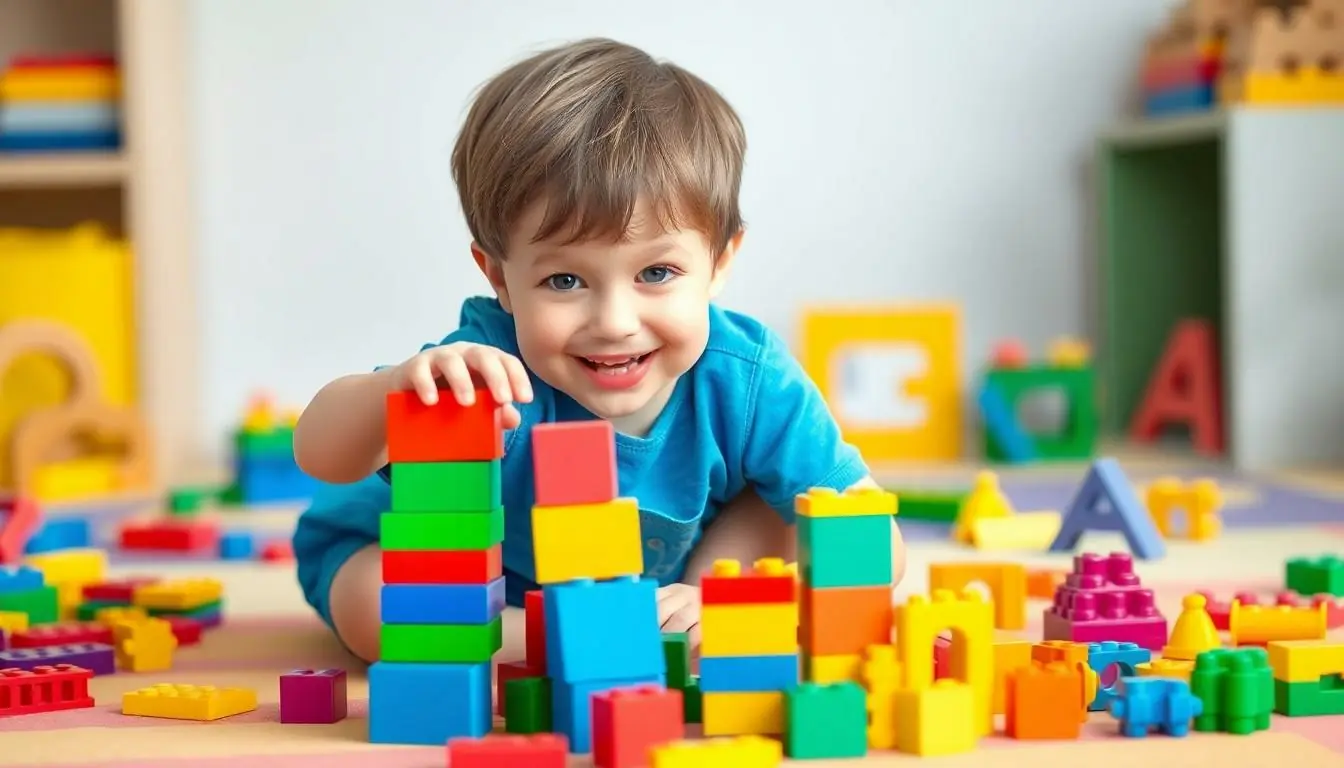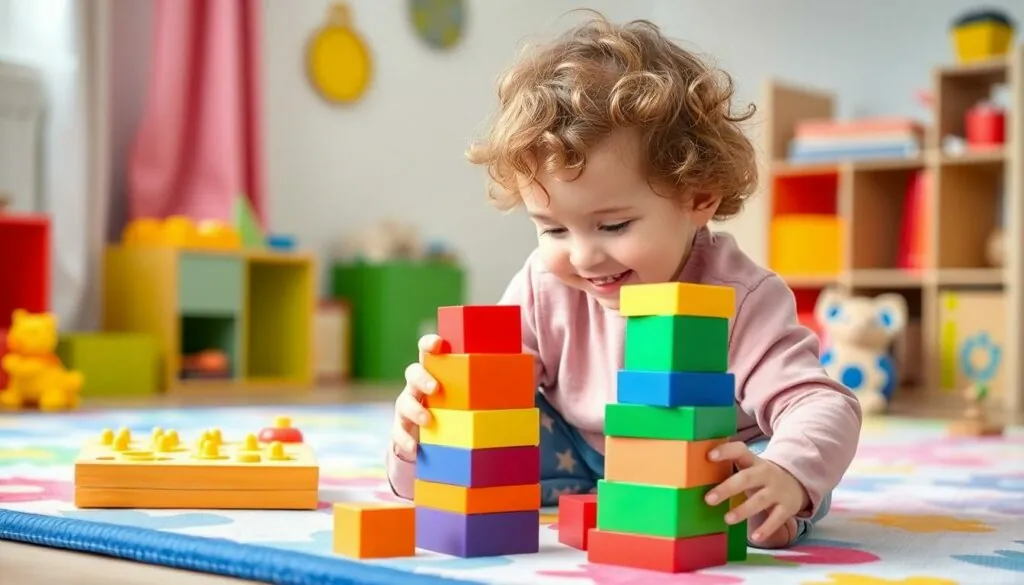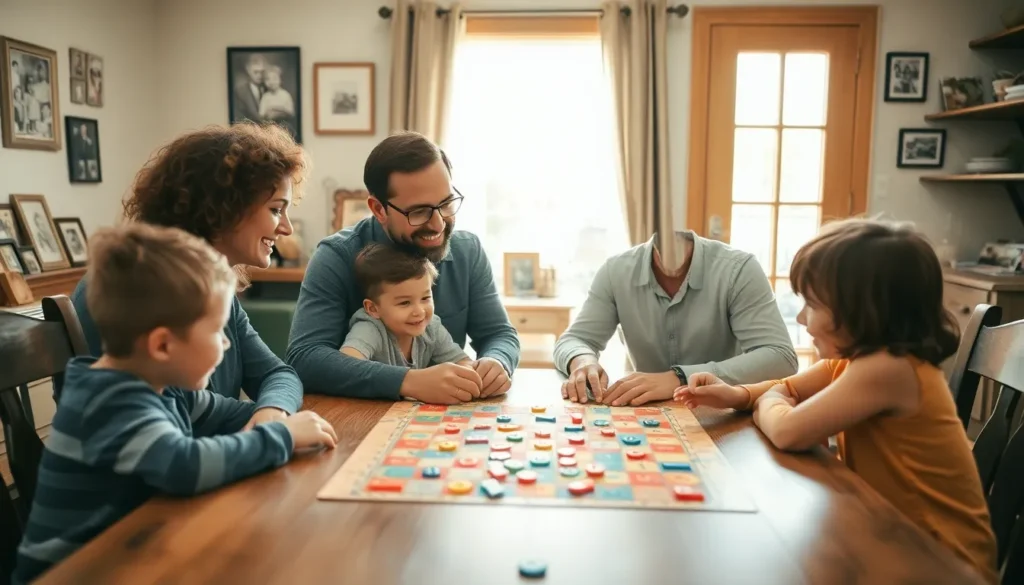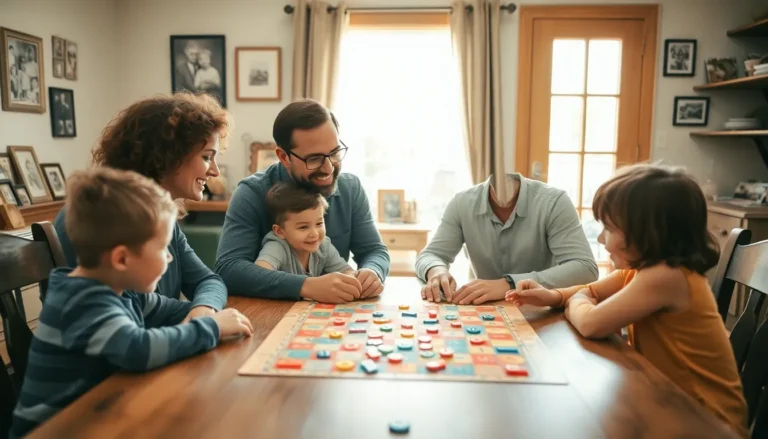Table of Contents
ToggleIn a world where toddlers are mastering the art of tantrums and snack time negotiations, it’s time to throw some science, technology, engineering, and mathematics (STEM) into the mix. Enter STEM toys—those magical little gadgets that promise to turn your pint-sized tornado into a mini genius. Who knew that building blocks could double as brain boosters?
These toys aren’t just fun; they’re like a secret weapon in the battle against boredom and brain drain. With every click, snap, and spin, toddlers develop critical thinking skills while having a blast. So why not swap out the cookie-cutter toys for something that sparks curiosity and creativity? After all, who wouldn’t want their toddler to grow up to be the next Einstein—or at least the smartest kid on the block? Let’s dive into the world of STEM toys and discover how they can shape young minds while keeping the giggles rolling.
Overview of STEM Toys for Toddlers
STEM toys engage toddlers by combining fun with educational experiences. These toys cover science, technology, engineering, and mathematics concepts, laying the groundwork for future learning. They encourage exploration and experimentation, fostering curiosity in young minds.
Parents notice that STEM toys enhance critical thinking and problem-solving skills. Building blocks and robotics toys allow children to create structures and understand basic programming concepts. Art supplies integrated into STEM products promote creativity, making learning more enjoyable.
Skills developed through play with STEM toys remain foundational. For instance, puzzles improve spatial awareness while coding toys introduce programming fundamentals. Not every toy needs to be overtly educational; some inspire imaginative play underpinned by learning principles.
Incorporating STEM toys into playtime promotes collaboration among toddlers. Many toys encourage teamwork, as children often work together to solve challenges. Sharing ideas during play establishes communication skills that last a lifetime.
Moreover, safety is a primary consideration for STEM toys designed for toddlers. Reputable brands adhere to strict safety standards. Parents often find that investing in high-quality, age-appropriate STEM toys pays off through continued engagement and learning opportunities.
Overall, the effective use of STEM toys opens doors for toddlers. Engaging in hands-on activities cultivates a lifelong love of learning. Parents who prioritize STEM toys contribute significantly to their child’s cognitive development.
Benefits of STEM Toys

STEM toys offer numerous advantages for toddlers, blending entertainment with essential learning experiences.
Cognitive Development
Cognitive skills flourish through the use of STEM toys. Engaging with building blocks sparks problem-solving abilities as toddlers figure out how to construct stable structures. Learning about cause and effect becomes natural when they manipulate various pieces in robotics kits. These toys stimulate curiosity by introducing basic scientific concepts, cultivating critical thinking and reasoning. Puzzles challenge toddlers, enhancing spatial awareness as they fit shapes together. Activities with STEM toys create an environment where exploration leads to discovery, laying the groundwork for advanced learning in the future.
Motor Skills Enhancement
Motor skills see significant improvement with STEM toys. When toddlers stack blocks or arrange magnetic tiles, they refine their fine motor skills by grasping and positioning objects. Activities involving coding robots or assembling kits promote hand-eye coordination as children interact with various components. STEM toys encourage both gross motor skills and balance through active play, such as navigating obstacle courses or building towers. Engaging with these toys helps toddlers develop coordination and dexterity, supporting their overall physical development while having fun.
Popular Types of STEM Toys
Various types of STEM toys engage toddlers, providing a fun way to learn essential skills. These toys span categories like building blocks, educational games, and science kits.
Building Blocks
Building blocks enhance spatial awareness and critical thinking. With multiple shapes and sizes, toddlers explore concepts like balance and symmetry when creating structures. Popular sets include classic wooden blocks and colorful plastic pieces, allowing for endless possibilities in design. Children develop fine motor skills as they stack and connect pieces. Making creative combinations encourages imaginative play while laying a foundation for engineering principles. Engaging with building blocks invites exploration and innovation.
Educational Games
Educational games offer interactive ways to learn fundamental concepts through play. Many games target math skills or problem-solving, leading to improved cognitive development. Card games and board games often integrate counting or shape recognition, enhancing learning through collaboration. Players can work together, fostering communication skills while having fun. Parents appreciate that these games promote critical thinking and reinforce academic concepts. Numerous options exist, making it easy to find games that suit toddlers’ interests and skill levels.
Science Kits
Science kits introduce toddlers to basic scientific principles in an engaging manner. These kits often include easy experiments or hands-on activities that encourage exploration of the natural world. Themes may range from simple chemistry sets to gardening kits, allowing children to discover various aspects of science. Through guided activities, kids develop observational skills and learn cause and effect. Not only do they gain valuable knowledge, but science kits also inspire curiosity and encourage questions, promoting a love for science from an early age.
How to Choose the Right STEM Toy
Selecting a suitable STEM toy for toddlers involves considering various factors that enhance both safety and educational value. Parents must take time to evaluate age appropriateness and safety considerations.
Age Appropriateness
Age appropriateness plays a crucial role in selecting STEM toys for toddlers. Toys designed for specific age groups ensure they match developmental stages and learning needs. For example, toddlers aged 1-3 benefit from soft building blocks that promote spatial awareness. Toys labeled for ages 3 and up often introduce basic coding and science concepts, suitable for expanding critical thinking skills. Always check the manufacturer’s recommendations for age ranges to provide appropriate challenges without frustration.
Safety Considerations
Safety considerations are paramount when choosing STEM toys for toddlers. Reputable brands adhere to strict safety standards, ensuring materials are non-toxic and free from sharp edges. Always inspect toys for small parts that may pose choking hazards. Look out for certifications such as ASTM and CPSIA, which indicate compliance with safety regulations. Additionally, selecting toys made from durable materials can prevent breakage during play. Parents create a secure play environment when they prioritize safety features.
STEM toys for toddlers represent a powerful tool for early development. By integrating play with learning, these toys spark curiosity and creativity, setting the stage for future exploration. Parents who choose high-quality, age-appropriate STEM toys not only provide entertainment but also foster essential skills that will benefit their children in the long run.
Investing in these innovative toys encourages collaboration and communication among toddlers, promoting social skills alongside cognitive growth. As children engage with building blocks, educational games, and science kits, they embark on a journey of discovery that nurtures a lifelong love of learning. Prioritizing safety and developmental appropriateness ensures that playtime remains both fun and enriching.







